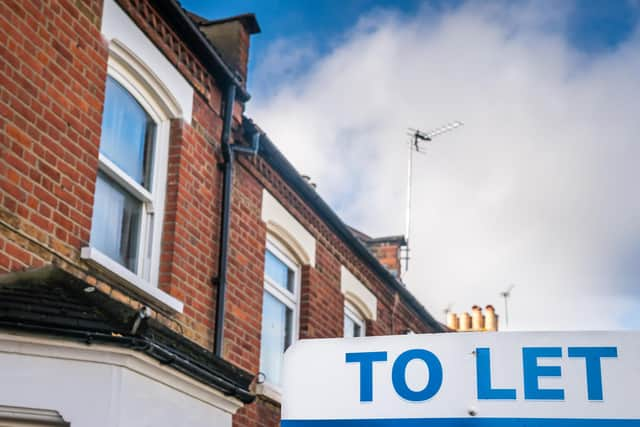Rent Scotland: Gap emerging as average monthly rent cost soars to £1,081
The latest quarterly report from leading estate agents Citylets priced the average cost of rent across the country at £1,081 over the period April to June – an increase of 11.4 per cent compared to the previous year and a 35.5 per cent change in five years.
The cost surpassed £1,000 for the first time in the first quarter of 2023, costing tenants an average of £1,007 per month.
Advertisement
Hide AdAdvertisement
Hide AdExperts suggest it is resulting in an “apparent” rent gap between those who have already secured accommodation and are covered by the Scottish Government’s Cost of Living (Tenant Protection) Scotland Act 2022 and those who are looking to secure a let property.


An initial rent freeze was announced in September last year before being extended until March 31 2023 where it was then replaced by a cap preventing private landlords from increasing the rent my more than 3 per cent, which will not expire until September 30.
Edinburgh and Glasgow were the areas recorded with the highest monthly increase, with rents priced at an average of £1,477 and £1,141 respectively, according to the data.
In Dundee, rent averaged £891; £871 in West Lothian; £835 in Aberdeen; £768 in South Lanarkshire and £745 in Renfrewshire.
Renfrewshire was the only area assessed which had not witnessed a double digit change compared to the previous year, with a 7.4 per cent increase in average rents from 2022.
The report states the increases underline “what many in the industry feared from the outset that the new legislation would acerbate the supply demand imbalance”.
The document added: “The rent gap between those already in accommodation and those seeking new properties to rent will now be apparent for many would-be movers looking to move within the sector on a like-for-like basis and will likely acerbate supply choice further.”
Aberdein Considine’s Adrian Sangster, contributing to the Citylets report, said: “The media have recently been referring to a ticking timebomb in the mortgage market.
Advertisement
Hide AdAdvertisement
Hide Ad“Scotland’s PRS [private renting sector] timebomb started ticking several years ago and despite many warnings, the Scottish Government appear happy to let it explode with those they claim to be protecting, suffering the most.”
It comes after the Everyone Home Collective released a report stating the private rented sector could help in Scotland’s homelessness crisis amid a shortage of social housing.
The lobby group, consisting of 40 charities and academics, suggested landlords could be incentivised by Government ministers to improve access and affordability to lower income households.
Demographics more at risk of eviction should be “targeted” to address those issues, with additional social security made available to top up support, it was recommended.
The group welcomed the Scottish Government’s commitment to build 110,000 affordable homes by 2032.
Comments
Want to join the conversation? Please or to comment on this article.